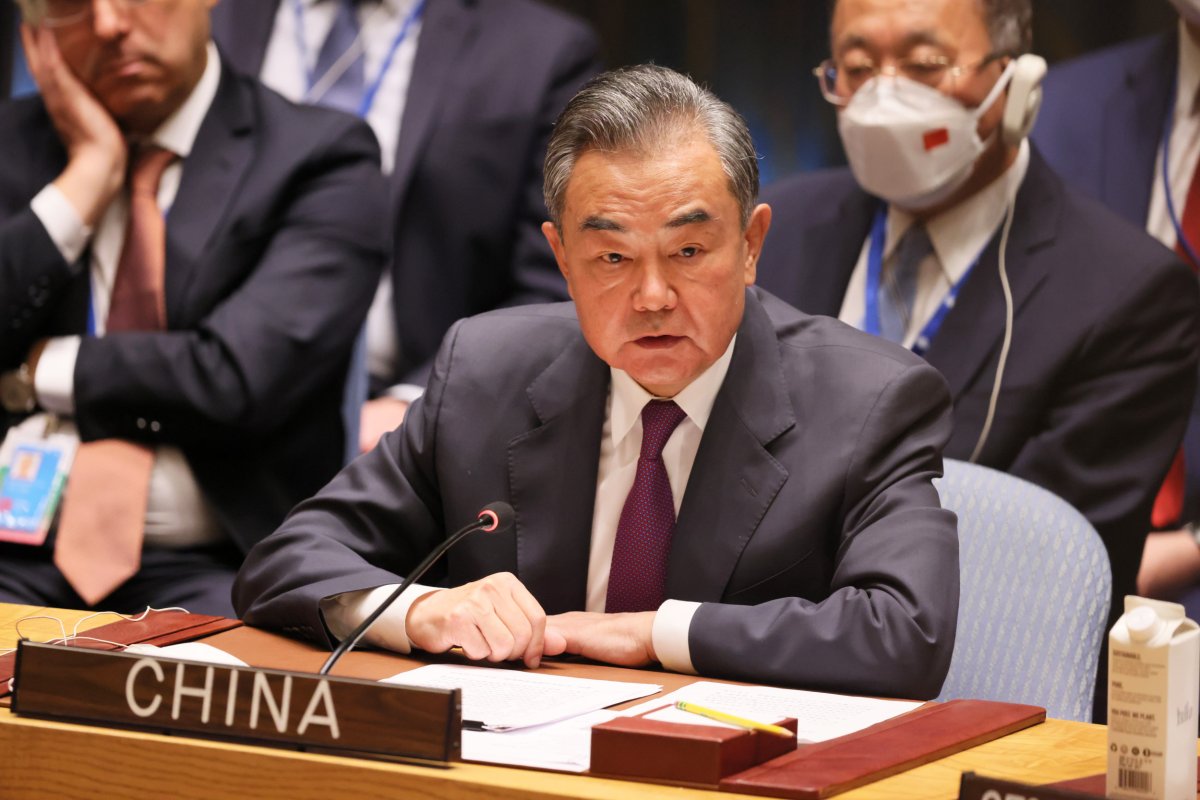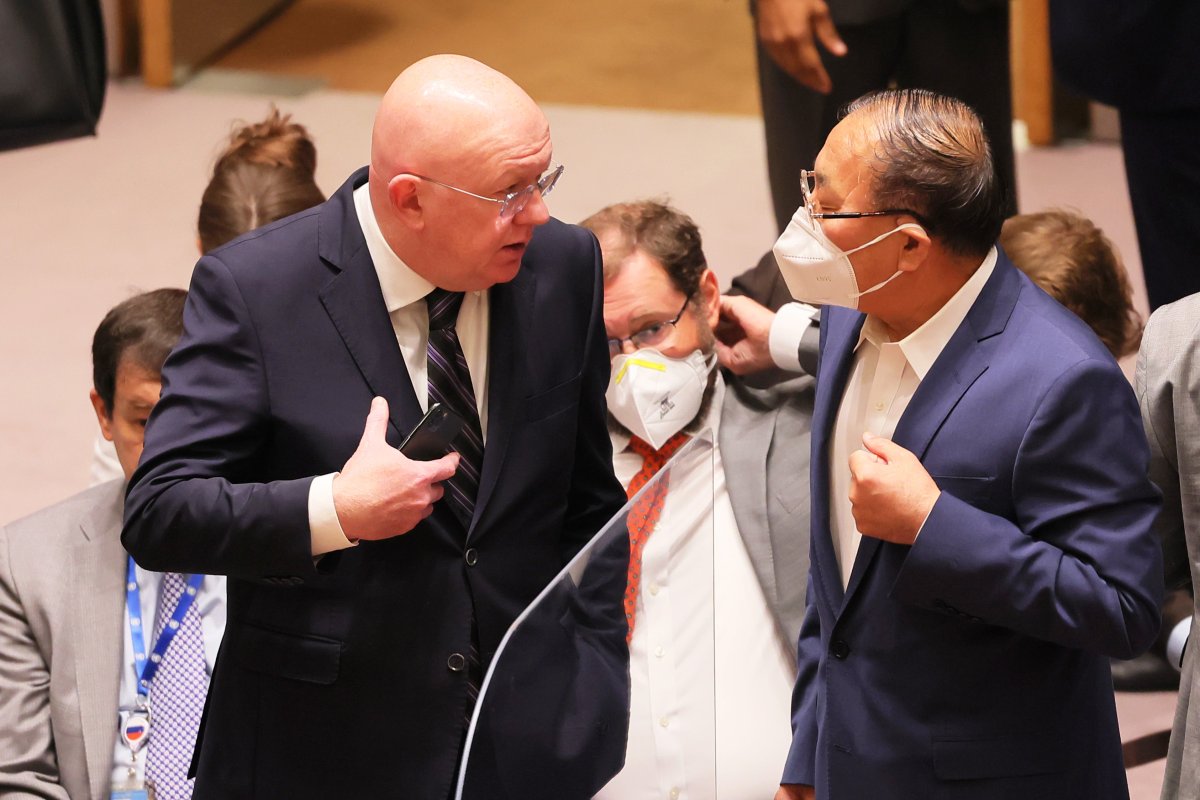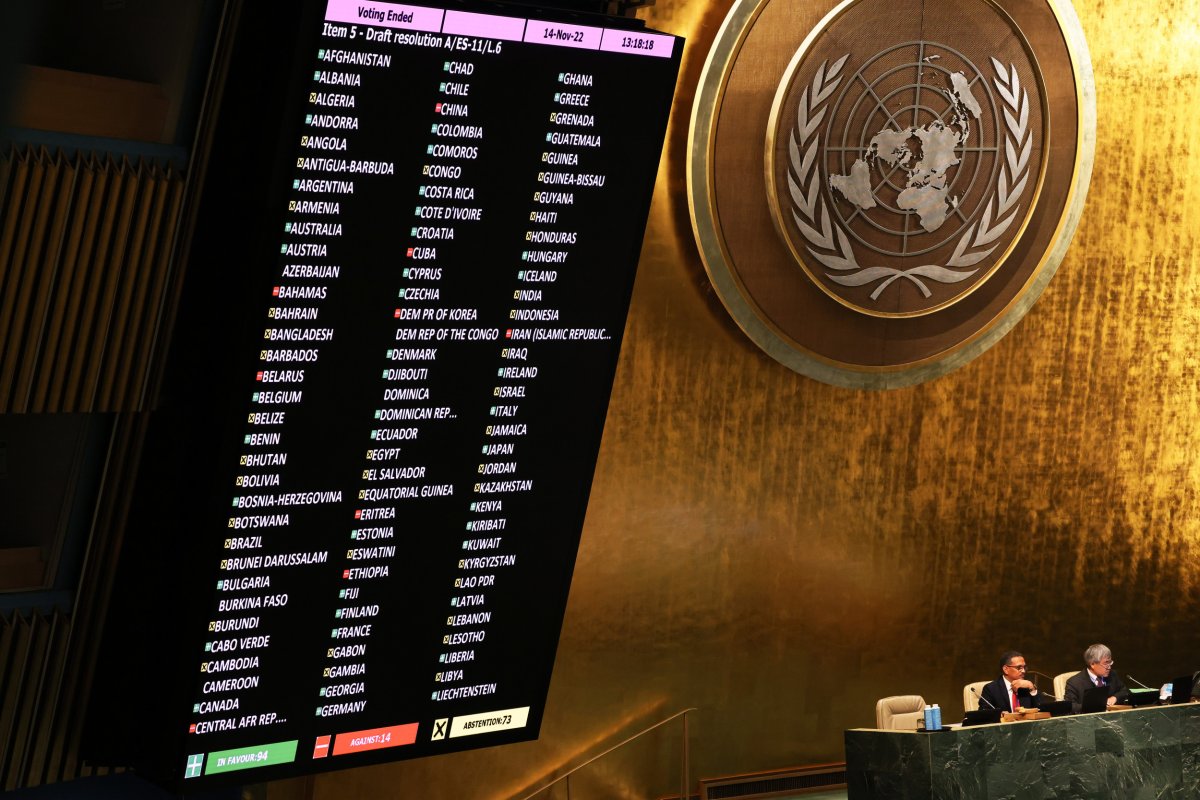The People's Republic of China became a permanent member of the United Nations Security Council when it succeeded the Republic of China (ROC), now commonly referred to as Taiwan, following the passage of U.N. General Assembly Resolution 2758 on October 25, 1971.
The ROC had fought alongside the Allies in World War II and was among the U.N.'s founding members when the international body replaced the failed League of Nations in 1945. It was also among the five victorious nations that formed the permanent members of the U.N. Security Council, holding veto power alongside France, the Soviet Union, the U.K. and the U.S.
But at the time, China was in the midst of a years-long civil war between the Nationalist government, led by Chiang Kai-shek, and Communist revolutionaries led by Mao Zedong. The fight ended four years later with Mao's forces taking control of mainland China and driving Chiang's army to the nearby island of Taiwan—a former Japanese colony between 1895 and 1945—where the ROC government remains today.
In Beijing's Tiananmen Square on October 1, 1949, Mao's Chinese Communist Party declared the founding of the PRC. But it would wait another two decades to receive recognition at the U.N.
Cold War Politics
The Soviet Union was the first nation to formally recognize this new China in 1949. The pair would remain close in the first decade of the Cold War as Beijing and Moscow stood against U.N. and U.S. forces in the Korean War. But Mao's fortunes with the West would change after the Sino-Soviet split in the 1960s, while Moscow's status would decline until the eventual disbandment of the union altogether.
France became the second permanent member of the Security Council to establish diplomatic relations with Mao's China in 1964, a move that was followed by other major turning points in the following decade.

On October 25, 1971, following years of background deliberations, Albania submitted General Assembly Resolution 2758 to the floor in order to decide the future of the China seat. It passed the two-thirds threshold with 76 votes in favor, 35 against, 17 abstentions, and two non-voting.
The resolution declared Beijing's officials to be "the only lawful representatives of China to the United Nations and that the People's Republic of China is one of the five permanent members of the Security Council."
The resolution also included a decision "to expel forthwith the representatives of Chiang Kai-shek from the place which they unlawfully occupy at the United Nations and in all the organizations related to it."
Former President George H.W. Bush, who was the top U.S. envoy to the U.N. at the time, led America's opposition to the expulsion of Taipei, which was then still a U.S. treaty ally. In the end, it was the Chinese lobby that came out on top.
Today, General Assembly Resolution 2758 remains controversial for another reason: it's central to Beijing's argument for excluding Taiwan from the U.N. and its institutions as part of its longstanding claim of sovereignty over the island, despite no mention of Taiwan in the declaration's text. Here again it's Washington that continues to back Taipei's meaningful participation, although only in institutions where statehood isn't a requirement.
The U.K., which had recognized the PRC in 1950, was afforded mutual recognition in 1972, marking the third Security Council member to establish ties with Beijing.
Following a decade of sensitive diplomacy by former President Richard Nixon and former Secretary of State Henry Kissinger, Washington eventually cut ties with Taipei in 1979 and recognized Beijing in the same year, while retaining robust but unofficial relations with Taiwan to this day.

Beijing's Newfound Power
Beijing began to formally represent China at the U.N. on November 15, 1971. Its first recorded use of a veto on the Security Council was to block Bangladesh's entry to the U.N. on August 25, 1972.
In the remaining years of the Cold War, China used its veto power sparingly, choosing to abstain on major decisions when they didn't directly affect Chinese national interests. In recent years, however, Beijing has used its vote strategically and in coordination with Moscow to advance joint interests through a "double veto"—China hasn't cast a lone veto since 1999.
In 1992, China voted in favor as the Security Council unanimously decided to establish a U.N. peacekeeping force to the former Yugoslavia. In 2011, both China and Russia abstained as the Security Council authorized military intervention in the Libyan Civil War. The same year, however, both vetoed sanctions against Syria and President Bashar al-Assad.
Among the more notable changes was China's stance on North Korea, its only formal ally. Since Pyongyang's first nuclear test in 2006, the Security Council has passed 10 resolutions with Beijing's assent, the last of which, in 2017, put a cap on exports to Kim Jong Un's regime.
Since then, China has used its veto powers to block further sanctions against the North, often citing deteriorating humanitarian conditions in the country as well as U.S.-led provocations with the South. Beijing insists it's upholding existing Security Council bans, despite accusations to the contrary.
Linda Thomas Greenfield, the current U.S. ambassador to the U.N., accused China and Russia of "enabling North Korea" last month after they rejected calls to formally censure Pyongyang over its recent string of missile tests.
This year, after Russia's invasion of Ukraine, China has used its significant heft on the Security Council and at the General Assembly to back Russia's resolutions and free-ride on its vetoes by abstaining.
In February, China abstained as Russia vetoed the Security Council's condemnation of Moscow. Then in early March, China abstained as 141 U.N. member states voted to call for an immediate end to the Russian military campaign.

Later in March, China voted with Russia as the Security Council shot down Moscow's resolution on humanitarian conditions in Ukraine, a text that was rejected for failing to identify Russia as the cause of the catastrophe. In April, Beijing voted against a General Assembly resolution to expel Moscow's representatives from the U.N. Human Rights Council.
In the nine months since the war began, China has continued this strategic voting on top of consistent pro-Russian messaging from diplomats and state media outlets.
The Council's Future
The Security Council has experienced remarkably little change in the last seven decades. In 1965, the six non-permanent seats on the top body were expanded to 10, creating a 15-member council that still exists today. Over the same period, the Soviet Union was succeeded by the Russian Federation in 1991, a fact Ukraine's representatives have challenged in their recent remarks at the U.N.
Aside from the five permanent members, which are also known as the "P5," five new rotating members are elected each year, with the 10 non-permanent seats generally comprising five states from Africa and Asia, one from Eastern Europe, two from Latin America and two from Western Europe.
This year's Security Council members are: Albania, Brazil, China, France, Gabon, Ghana, India, Ireland, Kenya, Mexico, Norway, Russia, the UAE, the U.K. and the U.S.
Next year's members will be: Albania, Brazil, China, Ecuador, France, Gabon, Ghana, Japan, Malta, Mozambique, Russia, Switzerland, the UAE, the U.K. and the U.S.
Each year, U.N. member states discuss potential reforms to the Security Council, mostly surrounding the expansion of permanent seats to include other major powers including India, Brazil or Japan.
Any changes, however, would require the agreement of at least two-thirds of member states in a General Assembly vote, and must also be ratified by two-thirds of member states. All of the veto-wielding P5 must also agree.
Uncommon Knowledge
Newsweek is committed to challenging conventional wisdom and finding connections in the search for common ground.
Newsweek is committed to challenging conventional wisdom and finding connections in the search for common ground.
About the writer
John Feng is Newsweek's contributing editor for Asia based in Taichung, Taiwan. His focus is on East Asian politics. He ... Read more
To read how Newsweek uses AI as a newsroom tool, Click here.






